China in cold on human rights
Australia’s human rights partnership with China has been suspended amid growing concerns over Uighurs and Hong Kong protests.
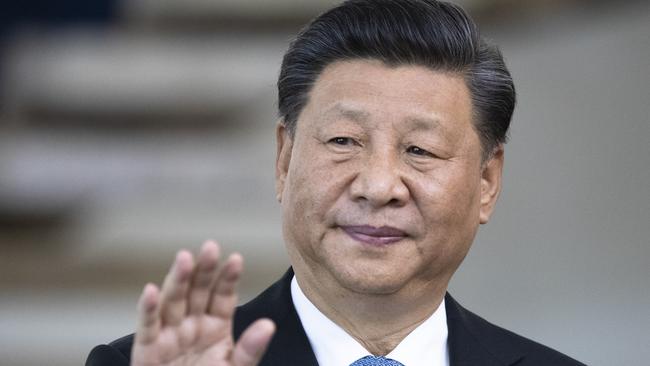
Australia’s human rights partnership with China has been suspended amid growing concern over the mass detention of Uighurs, Hong Kong democracy protests and the banning of two Australian MPs.
The Australian can reveal that a key program aimed at “advancing human rights reform in China” was suddenly stopped after more than two decades of operation as Xi Jinping attempts to douse foreign support for human rights causes. The move further cruels humanitarian collaboration between Australia and China after Beijing abandoned its long standing human rights dialogue with Canberra.
READ MORE: Former ASIO boss calls for ‘new balance’ with Beijing | We benefit from awakened China, writes Josh Frydenberg | Outspoken MPs banned from visiting China | Rowan Callick on the Great China Conundrum | Ticky Fullerton on how China’s big problem is saving our bacon | Editorial — Cool heads, smart policy will balance China ties
The scheme, quietly suspended in August, was set up under a formal partnership between the Department of Foreign Affairs and Trade, the Australian Human Rights Commission and the Chinese Ministry of Foreign Affairs to champion human rights principles and included activities such as study visits, workshops and policy development.
DFAT confirmed that the Human Rights Technical Co-operation Program — overseen by the AHRC in tandem with a range of Chinese partners including government agencies and worth $7.4m over three years — had been officially frozen.
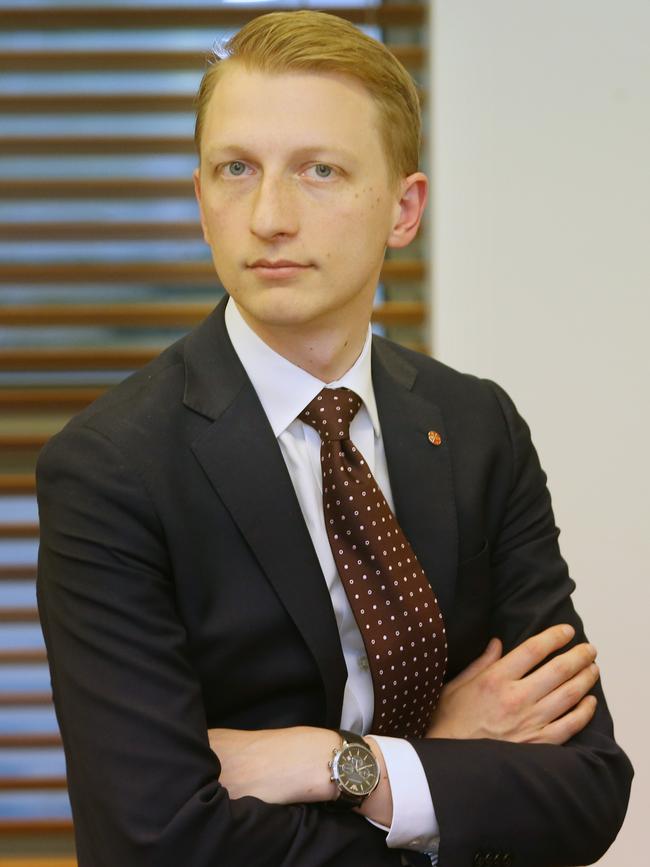
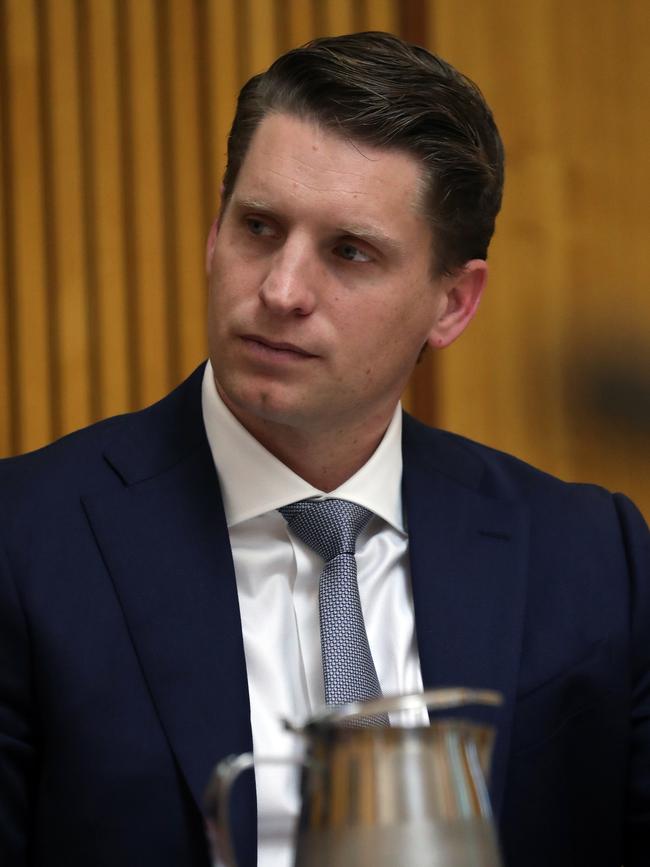
The Australian understands China has also failed to reach agreements with other nations over continuing human rights engagement.
On Sunday, Foreign Minister Marise Payne said she would continue to raise “strong concerns” about China’s human rights record following the leak of 400 pages of documents exposing Beijing’s crackdown on Muslims in the Xinjiang region.
Senator Payne said the “Xinjiang papers”, which were obtained by The New York Times and reveal that Mr Xi told officials in a series of private speeches to show “absolutely no mercy” in the struggle against separatism, were “disturbing”. It followed the emergence of footage in September showing hundreds of blindfolded and shackled Uighurs.
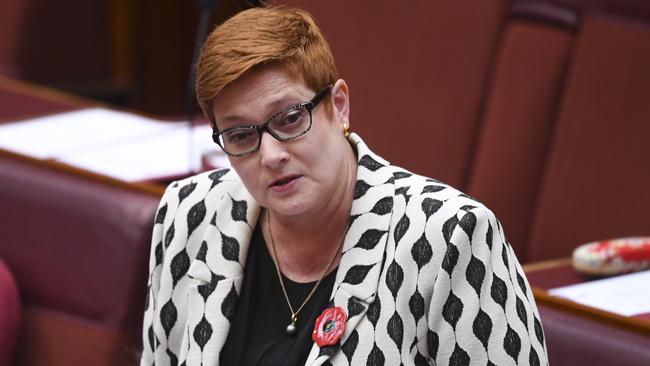
“These disturbing reports … reinforce Australia’s view,” Senator Payne said. “We have consistently called for China to cease the arbitrary detention of Uighurs and other groups.”
Chinese officials last month criticised Senator Payne after she said Australia would not hesitate to call out human rights abuses in Xinjiang province.
The diplomatic relationship has come under increasing pressure in the past two years over foreign interference concerns and anger from Beijing over pushback against its influence in Australian politics, universities and property and business sectors.
China clashed again with Australia at the weekend following a cancelled tour to the communist nation by parliamentarians and the banning of two outspoken Australian politicians — Liberal MP Andrew Hastie, chairman of the security and intelligence committee, and Liberal senator James Paterson, with the Chinese embassy in Australia calling on them to “repent and redress their mistakes”.

“The Chinese people do not welcome those who make unwarranted attacks, wantonly exert pressure on China, challenge China’s sovereignty, disrespect China’s dignity and undermine mutual trust between China and Australia,” the embassy said.
“China will never yield to colonisation of ideas and values. China is open to constructive dialogue and exchanges with people all around the world on the basis of mutual respect, equality and seeking common ground while reserving differences.”
On Sunday, Mr Hastie said China wanted a “one-way conversation” but he was open to going to China next year if there was a genuine exchange of ideas. “Senator James Paterson and I will not repent,” he said. “We will not repent for standing up for Australian sovereignty, our values, our interests, and standing up for people who can’t stand up for themselves.”
Senator Paterson also said he would not be “repenting on the instruction of any foreign power”.
A DFAT spokesman said there would be no reciprocal action to ban Chinese politicians, saying the government “encourages dialogue and exchange”.
While the HRTCP was suspended in August, DFAT stressed that the government would continue to “regularly raise human rights with China”.
The freezing of the HRTCP comes five years after the suspension of the Australia-China Human Rights Dialogue, which was last held in February 2014 at vice-minister/deputy secretary level. In total, 15 meetings were held between Australian and Chinese officials since the dialogue was established in 1997.
In 2017, The Australian revealed the Chinese government had walked away from the human rights dialogue with Canberra, with no intention of re-engaging, and with suspension of the HRTCP further diminishing official engagement.
The separate HRTCP arrangement with Beijing was established in 1998 after the first Australia-China Human Rights Dialogue the year before. The program was redesigned following an independent evaluation in 2016, with China agreeing to a new 2017-21 program. In its 2018-19 annual report, the AHRC said the program was “fundamentally underpinned by the view that by working together and by exchanging views and approaches, the most effective elements of human rights protection, promotion and administration will develop and prosper”.
“Collaboration, identifying shared priorities, and fostering mutual respect and trust are integral aspects of working towards this purpose. The goal is for Australia and China to collaborate on shared priorities to advance human rights reform in China,” the report said.
Strategic Forum agenda
More Coverage
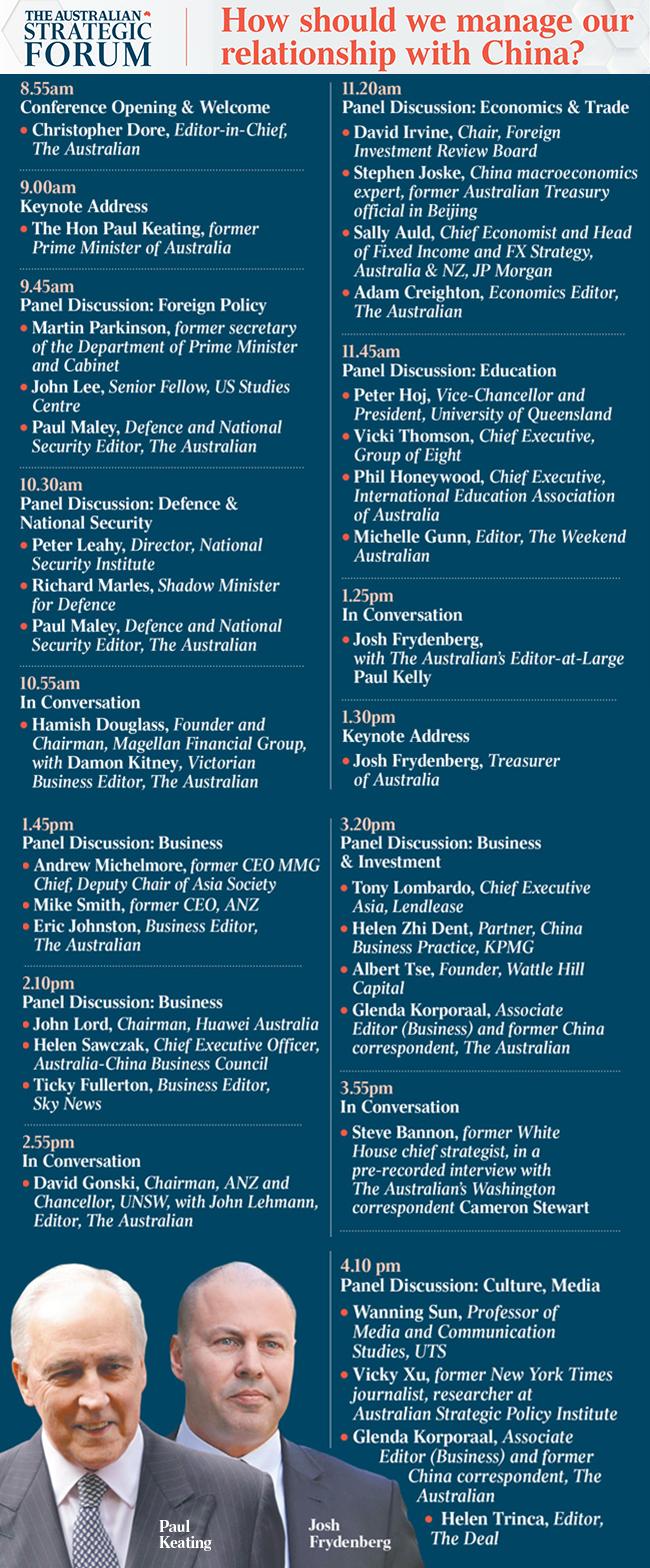




To join the conversation, please log in. Don't have an account? Register
Join the conversation, you are commenting as Logout